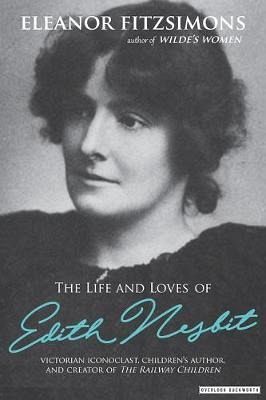



Still, particularly in light of that abysmal recent attempt at a War Of The Worlds adaptation, smothered in half-understood approximations of sexual morality from Ye Olden Days, it's fascinating to compare and contrast the real thing, where a woman getting married seven months pregnant might mean a small-scale ceremony but was certainly no obstacle to a woman becoming a beloved children's author. Up for doing away with all obstacles to his being able to get his end away with all and sundry, yet convinced that women were at some fundamental level more suited to home and hearth, he is the archetype of every dreadful boyfriend of a far smarter, better-looking and generally just preferable female friend that you've ever met. The biggest presence in her life, though – and in some ways just as prehistoric a figure – is her terrible husband, Hubert Bland, one of those socialists with suspiciously convenient principles when it came to things like gender essentialism. This was one of several details that helped further invest me in the story – Devonshire Square, where I often sit at lunch, makes a brief appearance, and the Crystal Palace dinosaurs past which I commute turn out to have been a big influence on Nesbit. The father and the sister, incidentally, both being buried very near me in the never quite fashionable catacombs of West Norwood (disappointingly, though Fitzsimons generally has an eye for the curious detail even where it's not strictly relevant, she does not mention the best feature of these, the hydraulic catafalque). Also a brother, who despite inventing the flower-dyeing process which enabled Wilde et al to wear their green carnations, spent a period in the workhouse before his premature demise and a sister. She lost her father early he was a scientist whose own father had been a rather Gradgrindian-sounding educator, who disapproved of novels and Darwin both. But most writers who create paradises are reacting against experiences as much as they're recreating others, so we see also the hatred of school, and of change the never quite forgotten loss of favourite friends and toys the early bereavements. Yes, the rural idyll is here, manifest both in the ones she experienced as a child herself and those she'd try to create for her own brood. Opening on the young Edith having the wind put up her by the mummies of Bordeaux, it's clear from the off that this will be no misty celebration of a much-loved children's author.


 0 kommentar(er)
0 kommentar(er)
